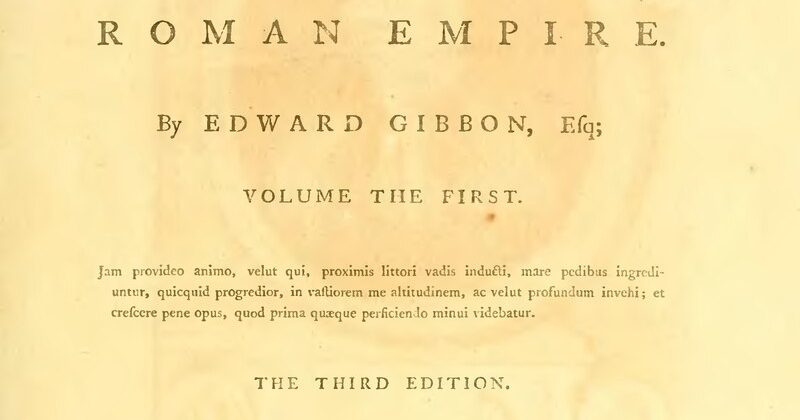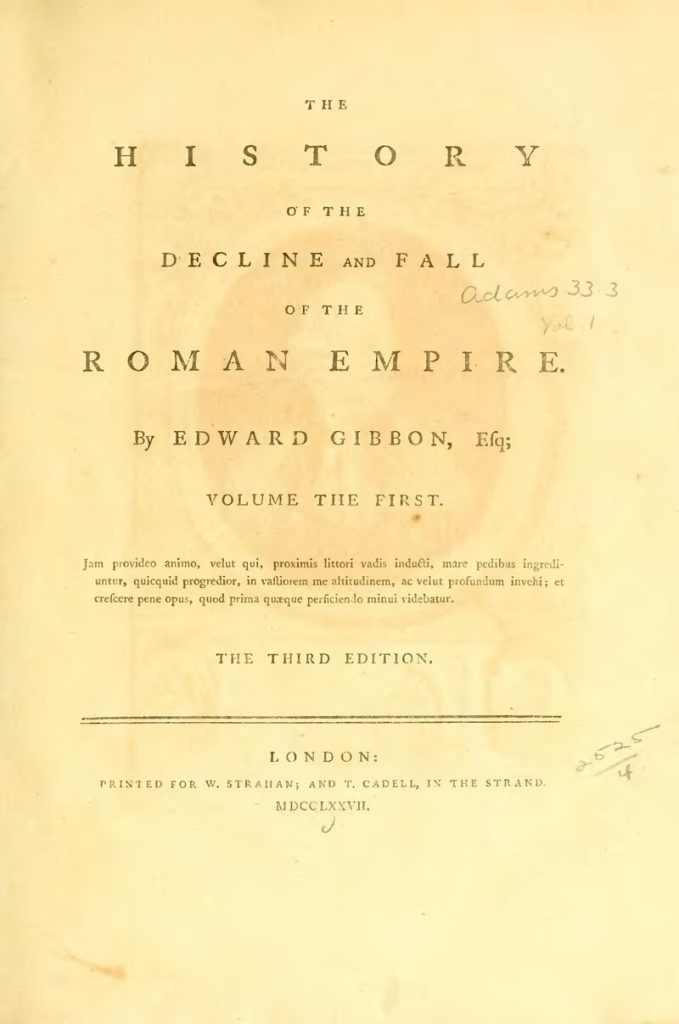

Jim Sleeper thinks it might be time to take another look at the Edward Gibbon’s Decline and Fall of the Roman Empire. Here is a taste of Sleeper’s recent piece at Commonweal:
“When the people give way,” warned John Adams, “their deceivers, betrayers, and destroyers press upon them so fast, that there is no resisting afterwards. The nature of the encroachment upon the American constitution is such, as to grow every day more and more encroaching. Like a cancer, it eats faster and faster every hour.”
“History does not more clearly point out any fact than this,” wrote founder Richard Henry Lee, “that nations which have lapsed from liberty, to a state of slavish subjection, have been brought to this unhappy condition, by gradual paces.” It could happen not with a bloody coup but with a smile and a friendly swagger, when the people had grown tired of self-government and could be jollied or scared into servitude.
The founders anticipated someone like Trump partly because they’d been reading Edward Gibbon’s Decline and Fall of the Roman Empire, which was hot off the presses in the 1770s. We should read Gibbon now, too, paying close attention to his account of how the Roman republic slipped into tyranny when powerful men had seduced or intimidated its citizens so that they became a stampeding mob, hungry for bread and circuses.
Gibbon wrote that the overconfident Romans were slow to discover the introduction of “a slow and secret poison into the vitals of the empire,” under which Roman citizens “no longer possessed that public courage which is nourished by the love of independence, the sense of national honor, the presence of danger, and the habit of command. They received laws and governors from the will of their sovereign and trusted for their defense to a mercenary army.”
You might say that Americans have been there before, going back to the early worship of George Washington, whom many would have made a king. But Washington declined this invitation because his own “civic-republican” character was stronger than Trump’s. You might say that the republic has recovered from several earlier lapses, as when the Civil War produced Lincoln’s “a new birth of freedom,” or when the rampant consumerism of “the Roaring ’20s” imploded in 1929 but led to the New Deal.
But if we really want to recover the spirit of liberty that Trump has twisted and coopted, we’ll need not only to prevent billionaires and their emulators from becoming Trump’s puppeteers or henchmen, in and out of the cabinet, and not only to rein in the financing and consumer-marketing schemes that bypass our brains and hearts on their way to our lower impulses and our wallets. Since long before Trump’s reality TV show “The Apprentice” became a hit, con-men and unbridled commercial forces have been softening us up, leaving us, as Cicero said of his fellow Romans, “too ill to bear our sicknesses or their cures,” capable only of occasional, mob-like eruptions and cries for a strongman.
Read the entire piece here.